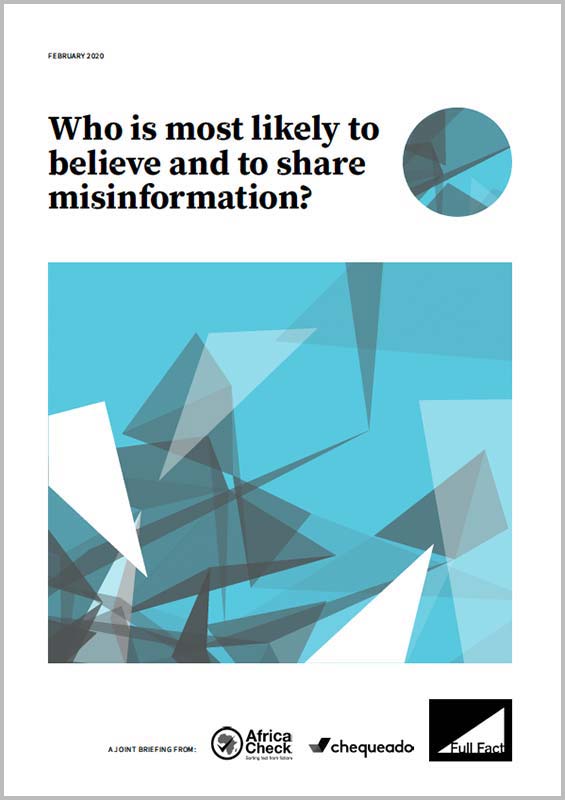Spinach is in fact rich in iron, just not the type the human body absorbs well. For his part, Popeye loves spinach for its Vitamin A content, not for the iron. But somehow, familiarity inspires belief.
The consequences of the spinach misconception are relatively harmless. But when a piece of untrue information has the potential to affect our vote, our finances, or decisions about our health, being aware of our own susceptibility to bias may well have a deeper impact.
There are a number of factors which make us more likely to believe false information:
Age and education
Studies have shown that how old you are and your education levels do affect how susceptible you are to misinformation.
A survey by the Pew Research Centre found that older adults and adults without college education find it harder to distinguish between fact and opinion. Seniors in particular experience difficulty in recalling details, even though they might remember the overall message of a story.
Repetition
As with the spinach myths, we are all prone to believing the things we hear over and over. Experiments have found that headlines seen repeatedly are more likely to be perceived as accurate, even when they hold no basis in reality, and even when participants cannot recall seeing them before.
How well we understand something
This is also known as “processing fluency”— the ease with which we can decode a piece of information.
Elements which influence the ease with which a statement can be read – such as font size, contrast, and the presence of pictures – can all affect how much it appears true.
Our existing beliefs
Finally, we tend to believe the evidence that confirms our world views, and dispute that which challenge us. Studies of long-debunked myths, such as climate scepticism, have found that participants who held strong hierarchical and individualistic views were more likely to reject the evidence, despite being perfectly able to comprehend it.
Psychologists call this motivated reasoning. In some cases, we can mitigate this bias by reining in our “fast” reacting gut instinct, and taking the time to “think slow” – examining new evidence for what it says, rather than for how it conforms with what we already believe.
A number of studies have found that this type of analytical thinking can cut through partisanship – though this is much easier to do in the case of novel claims, than in the case of entrenched myths.
Misinformation is something we can all fall prey to
Regardless of age or education, we all get more distracted on social media than on other news media, and are less likely to recall article sources. We all tend to share information high in emotion, and can fall prey to cognitive biases.
As readers, we’re not just passive recipients of misinformation.
We all have the power to challenge misleading claims. But existing research shows that we’re not very likely to.
A survey of UK adults found that, while one in two respondents spot content which is inaccurate on social media, only one in five correct those who share it.
Read the full report here and let’s return to facts.












